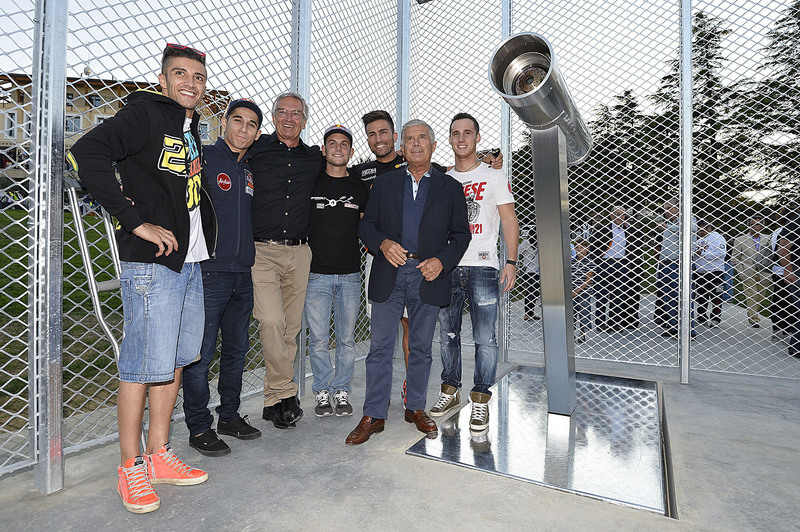Commitment to supporting grassroots racing remains key for leading bike insurance specialist
Fifteen-year-old Chester racer Joe Francis continued his path towards motorcycle stardom by winning the Moto3 class of the British Motostar championship at Silverstone yesterday.
Bennetts first backed Joe in 2011, providing financial backing to help the then 13-year-old complete his season in the Aprilia Challenge championship, a series which has helped launch the career of numerous world champions including Cal Crutchlow, Chaz Davies and two-time MotoGP champ Casey Stoner. After going on to take the title in thrilling style, Bennetts continued to back the prodigious talent as he entered the British championships as part of its policy of supporting young riders.
This season saw Francis join forces with the professional Team WD-40, racing a Honda NSF250R Moto3 machine in the British championship. Starting with a second place in his first race at Brands Hatch, the youngster scored a podium finish at every round until Sunday’s Silverstone event, where he rode with maturity to take the fifth place required to secure the title.
Joe Francis said: “It’s a fantastic feeling to win the British championship. We had a few problems in qualifying but I knew what I had to do going into the race and I was able to get the fifth place that I needed to win the championship with a race to spare.
“Bennetts have supported me since 2011 and have proved a great sponsor, not only in terms of helping me raise the finances required to go racing but also in raising my profile and putting me in touch with professionals who can help me progress my career. In the past year I have worked alongside Scott Redding and James Toseland, Bennetts’ other ambassador riders, and been interviewed by national TV, radio and newspapers.
“Being a Bennetts ambassador is a fantastic experience for a young rider and they’ve certainly played their part in helping me to become a British champion. My ultimate aim is to make it to MotoGP and become a world champion, and I hope to continue working with Bennetts as I move on to the next step in my career.”
Bennetts is committed to supporting Britain’s top motorcycle racing talent and up-and-coming young riders. In addition to Francis, the company is currently in its third season of backing Scott Redding, who currently leads the Moto2 world championship, and retains an association with two-time former World Superbike champion James Toseland.
Any young riders who think they have what it takes to follow in the tyre tracks of Francis and Redding are invited to email Bennetts at [email protected], detailing their racing history, 2014 plans, career objectives and sponsorship requirements for the 2014 season.




 A three metre long flame will burn from the installation of artist Arcangelo Sassolino, created by an idea from Lino Dainese and Marco's family. There's nothing better than fire to represent Simoncelli's soul and enthusiasm, the things that made people love him.
A three metre long flame will burn from the installation of artist Arcangelo Sassolino, created by an idea from Lino Dainese and Marco's family. There's nothing better than fire to represent Simoncelli's soul and enthusiasm, the things that made people love him.